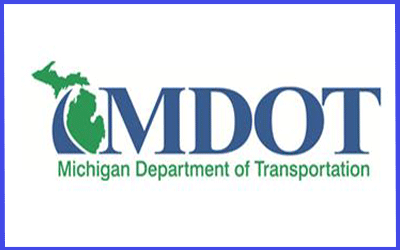
Elder Abuse Task Force Recommendations
|
|
|
|

|
|
|
|

FOR IMMEDIATE RELEASE
April 13, 2023
Contact: press@michigan.gov
Gov. Whitmer Signs Commonsense Gun Violence Prevention Legislation to Keep Michigan Communities Safe
Establishes universal background checks for all firearm purchases, safe storage requirements
LANSING, Mich – Today, Governor Gretchen Whitmer signed commonsense gun violence prevention bills that will establish universal background checks for all firearm purchases and safe storage requirements. In January, Governor Whitmer proposed this legislation during her State of the State address and has worked with the Michigan Legislature, community groups, law enforcement, students and parents following February’s shooting at Michigan State University and the shooting at Oxford High School in November 2021 to get these commonsense measures that will reduce gun violence signed into law.
“Today, we are turning our pain into purpose and honoring those we have lost with commonsense gun violence prevention legislation supported by a majority of Michiganders,” said Governor Whitmer. “Universal background checks and safe storage are long-overdue steps we are proud to take today that will save lives by keeping guns out of the hands of criminals and domestic abusers and children in the home. I want to thank my partners in the legislature for getting this done, the advocates who fought so hard to make this happen, and every Michigander impacted by gun violence who shared their stories. We will keep working together to prevent mass shootings, reduce gun violence, and save lives.”
“Every gun death is preventable, yet so many Michiganders, including me, have lost people they love to the senseless tragedy of gun violence,” said Lieutenant Governor Garlin Gilchrist II. “Today, we are taking action on commonsense reforms supported by a majority of Michiganders. Universal background checks and safe storage laws will save lives and help keep families and kids safe at home, in the streets, at school, and at work. These bills build on our ongoing investments in public safety and Operation Safe Neighborhoods to create safer communities where everyone can thrive. Governor Whitmer and I are committed to building on this progress and working with anyone to prevent gun violence.”
Governor Whitmer signed Senate Bills 79, 80, 81, and 82 and House Bills 4138 and 4142.
“The prevalence of gun violence is exhausting and frustrating, and for a very long time it felt like there was no hope for progress. But the thousands of Michigan voices calling for change never gave up, and today – in our first hundred days of the new majority – that call for change results in new laws that will make our state safer,” Senate Majority Leader Winnie Brinks (D-Grand Rapids) said. “We hope that these first steps become a blueprint for other states that have yet to find their path forward on gun violence prevention. Today’s bill signing is proof that when you bring first responders, students, parents, teachers, safety experts, and community leaders together to find common ground, you can save lives and build the better, safer future that Michiganders deserve.”
“Protecting children is our top priority,” said Speaker Joe Tate (D-Detroit). “As elected officials, it is our responsibility to do what we can to help keep our communities safe from gun violence. Requiring guns be safely stored in homes where a minor is present and implementing background checks for the purchase of all firearms are simple reforms that just make sense. Owning a firearm is both a right and a responsibility and we must be sure we are doing all we can to help keep kids safe and to stop the illegal sale of guns.”
Senate Bill 79, sponsored by state Senator Bayer (D- West Bloomfield), will protect children by requiring an individual to keep a firearm being stored or left unattended on a premises unloaded and locked with a locking device or stored in a locked box or container if it is reasonably known that a minor is or is likely to be present on the premises and establish a range of penalties for a violation. The bill will also require the Department of Health and Human Services to inform the public of the penalties, publish lethal means counseling literature, and provide that literature to federally licensed firearms dealers and revise the wording of a notice that a federally licensed firearms dealer must post on the premises where firearms are sold.
“Finally, there is a tiny stitch to begin healing my heart, broken from the Oxford school shootings, the MSU school shootings, and every injury or death from accidental shootings of or by children. Finally, we are doing our job, passing legislation, taking our first steps to manage this out-of-control gun violence situation in Michigan,” said state Senator Rosemary Bayer (D-West Bloomfield). “I’m grateful for the work of my colleagues on this issue for years, for my team and the policy team who have worked so hard to get it done, and to the Governor and her team for making it possible for these to become law. Let’s celebrate, and then get back to work on the next step!”
Senate Bill 80, sponsored by state Senator McDonald Rivet (D-Bay City) is the senator’s first public act. The legislation updates the state’s criminal code for safe storage of firearms for child access protection.
“I have devoted the bulk of my career to helping children and families thrive. We can’t thrive without feeling and being safe,” said state Senator McDonald Rivet (D-Bay City). “That’s why overwhelming majorities in Michigan, including gun owners, support the action we’re taking. This is about protecting our children and preventing tragedies from upending our communities. I’m proud to stand against special interests and stand up for kids and families.”
“Over half of all gun owners don’t store and lock their guns, which means millions of young children live in homes with unlocked and loaded firearms,” said state Representative Felicia Brabec (D-Pittsfield Township), chair of the Michigan Firearm Safety and Violence Prevention Caucus. “That’s why we’ve introduced bills that crate safe storage requirements for firearm owners with children in the home. By keeping guns properly stored, we can prevent even the potential misuse of those weapons by children. We have a chance and a responsibility to change the culture around keeping guns responsibly and securely stored. I have high hopes that these bills will not only encourage responsible gun ownership but that they will save Michiganders’ lives.”
Senate Bills 81 and 82, sponsored by state Senators Irwin and Hertel, lower the costs of firearm safety devices to ensure owners can safely store their guns, keeping them away from children and out of the hands of criminals.
“Firearm fatalities are currently the leading cause of death for young people in our nation,” said state Senator Kevin Hertel (D-St.Clair Shores). “As a father, I am proud of the steps our state is taking today to change that and build a safer future for all.”
House Bills 4138 and 4142, sponsored by state Representatives Churches and Carter, protect Michigan communities by closing loopholes in the law and expanding universal background checks to all firearms.
“It is our collective responsibility to keep students safe,” said state Representative Jaime Churches (D-Grosse Ile). “This legislation provides a foundation to help build a safer Michigan – so no student, no worshiper, no law enforcement officer – has to fear for their safety. As state representative for Downriver, I will advocate for reasonable, common-sense policies to protect our communities from gun violence.”
“Michigan has not been spared from our nation’s plague of gun violence,” said state Representative Brenda Carter (D-Pontiac). “For years now, the legislature in Michigan has been paralyzed to act. No more. I am proud to have the governor sign my bill as a part of the universal background check package and to be able to share in this great moment for our state.”
Quotes from Community Leaders
“This is a great day for Michiganders. The gun safety bills signed into law today will undoubtedly save lives and make the state of Michigan a safer place to live. No one should have to go about their lives and fear gun violence,” said former Congresswoman Gabby Giffords. “Today’s bill signing was a major step forward to stopping gun violence in Michigan. We thank Governor Whitmer, Speaker Tate, Leader Brinks, and all legislators who supported these important bills and the advocates who made this bill a reality.”
“This legislation is a commonsense approach to keeping children and communities safe,” said Marquette County Sherriff Gregory Zyburt. ” These bills will ensure those that do not qualify to purchase guns, don’t. I’m thankful to work alongside legislators to prevent gun violence and keep firearms out of the hands of individuals who intend to harm others.”
“Today we are proud of our Governor and State Legislators for passing meaningful gun legislation that will help protect our community, and make sure that we are being responsible when it pertains to gun ownership in the State Of Michigan,” said Rev. Richard White III, President of the Council of Baptist Pastors Detroit & Vicinity. “This legislation is so important because we must be concerned about the most vulnerable in our society. It is our duty to make sure that we are working together and doing what is right to make our world a better place! The Bible reminds us in Micah 6:8 ‘Do Justice Love Mercy and walk Humbly with God’.”
“For years citizens from across the country have been crying out for common sense gun laws mostly to no avail,” said Pastor Barry Randolph, Church of the Messiah Detroit. “Michigan will now lead the way with the signing of this bill. Michigan residents can now rest assured knowing that steps have been made to make our communities much safer! Parents, students, teachers, seniors, clergy, activists, and all Michigan residents now know that their pleas and cries for common sense gun laws have heard, validated, and acted upon!”
“Common sense legislation like this in addition to prayer is key to reducing gun violence, whether accidental or purposeful in our communities,” said Bishop Avery D. Burrel, Christ Temple Apostolic Faith Church, Muskegon Heights. “Governor Gretchen Whitmer and the legislature have shown they are ready to lead and partner on keeping our communities safe.”
“Today we’re honoring the lives stolen by gun violence with action that will help save lives and prevent senseless tragedies,” said Angela Ferrell-Zabala, senior vice president for movement building for Everytown for Gun Safety and Moms Demand Action. “Thanks to the tireless efforts of Governor Whitmer, our gun sense champion lawmakers in the House and the Senate, and the grassroots gun violence prevention movement – including Moms Demand Action and Students Demand Action volunteers and gun violence survivors – universal background checks and secure storage will now be the law of the land in Michigan.”
“Today, Michigan is showing the nation what it looks like to lead on gun safety,” said Celeste Kanpurwala, chapter leader for the Michigan chapter of Moms Demand Action. “These laws will save lives, and we couldn’t be more proud to work hand in hand with the gun sense champions in the statehouse and the governor’s mansion to get this legislation across the finish line. Today, we celebrate this life-saving progress and recommit ourselves to the work to make Michigan safe for all of us.”
“The tragic mass shooting at Michigan State University was a call to action, and Governor Whitmer and Michigan legislators answered it by championing common-sense laws to keep all Michiganders safe from gun violence,” said John Feinblatt, president of Everytown for Gun Safety. “Now, finally, every gun buyer in Michigan will be required to pass a background check, and every gun owner will be required to safely store their weapon — two common-sense measures that have broad public support, including among gun owners themselves.”
“Today, Michigan lawmakers proved that we can in fact take meaningful action to address gun violence, and we are now one step closer to freeing an entire generation from the constant fear of being shot. These laws will go a long way in protecting the children of Michigan, their families, and their communities,” said Kris Brown, president of Brady United Against Gun Violence. “Brady applauds Gov. Whitmer, Senate Majority Leader Brinks, Majority Floor Leader Singh, Chairwoman Chang, Speaker Tate, Chairs Breen and Brabec and Democratic members of the state legislature for their leadership and commitment to addressing gun violence in Michigan.”






|
|||
|

|
|
||||||||
 |
||||||||
News Release |
||||||||
|

You play a role in work zone safety.
|